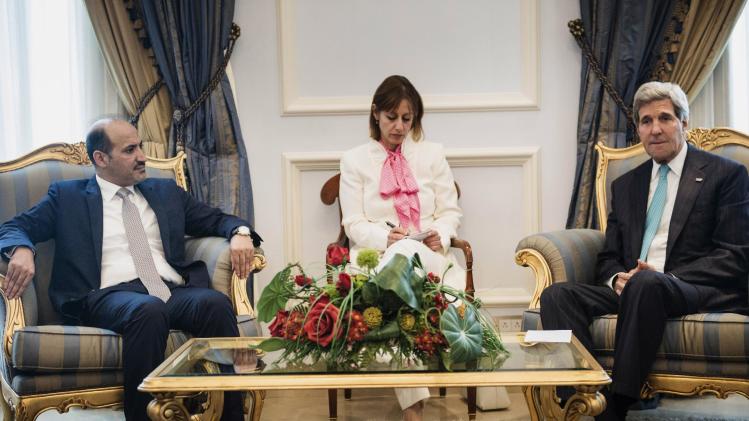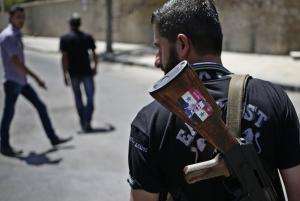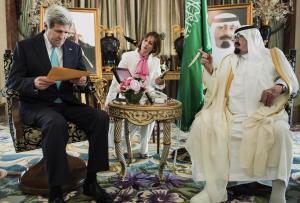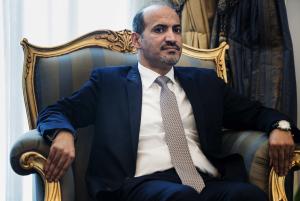June 18, 2014
Updated: June 19, 2014 00:47 IST
The Islamist resurgence in the great arc from Syria to Pakistan is threatening India’s most vital interest — energy. New Delhi needs to start thinking about how it might respond “Iraqi democracy will succeed,” President George Bush proclaimed days after United States forces had brushed aside President Saddam Hussein’s forces in just three weeks of concentrated attacks, in 2003, “and that success will send forth news, from Damascus to Tehran, that freedom can be the fate of every nation.” Faced with reports of large-scale looting that followed the fall of Baghdad on April 12 that year, his ideological mentor and Secretary, Donald Rumsfeld, was dismissive: “freedom’s untidy. And free people are free to make mistakes ….”
Fate authored tragedy, classical writers held, through a cycle of hubris, atë, and nemesis: overweening ambition, followed by impetuous actions, leading on, inexorably, to destruction.
Last week, the epic wars unleashed by Mr. Bush in the wake of 9/11 took a step closer toward their tragic climax. Islamist armies, more powerful than ever before, have swept aside Iraq’s military in Mosul, Tikrit and Bayji; in Syria, too, they control large swathes of territory. Yemen has all but disintegrated; Pakistan is in apparently terminal meltdown. Iran and Saudi Arabia, the two largest regional powers, have been eyeing each other warily — each wondering when the ethnic-religious fires raging across the region will ignite a full-blown war between them.
Hubris, powered by oil
Indians ought to be paying close attention, for this war will hit homes from Kupwara to Kanyakumari. Fifty-seven per cent of India’s crude oil imports come from states directly threatened by the looming chaos in West Asia — Saudi Arabia, Iran, the United Arab Emirates, Kuwait and Iraq itself. Long wars in the region could disrupt supplies and raise prices, undermining India’s hopes of an economic revival.
For New Delhi’s strategic establishment, this war will prove a moment of decision about India’s place in the world — and just what it is prepared to do to protect it.
“Persian oil,” President Franklin D. Roosevelt told a British diplomat in 1944, “is yours. We share the oil of Iraq and Kuwait. As for Saudi Arabian oil, it’s ours.” Following the end of the Second World War, the U.S. set up a string of military bases, stretching from Turkey to the Persian Gulf, guarding the world’s most crucial resource, and the regimes that sat on it. From 1946 to the eve of 9/11, the U.S.’ military investment more than paid off: prices stood steady at about $20 a barrel, measured at 2012 prices, bar for a short period after 1973.
Last year though, President Barack Obama announced that the U.S. was no longer interested in “being the world’s policeman.” In a speech delivered earlier this summer, he expanded on that vision, saying that military force would only be used to protect American lives against direct threats.
The economic rationale behind Mr. Obama’s thinking is simple: by 2025, the shale oil and gas revolution in the U.S. will have long freed it of dependence on imported hydrocarbons. “Every year,” he recently said, “we are becoming more energy independent.”
Energy-thirsty emerging economies in Asia will, in that year, be importing a record 33.6 million barrels per day.
To understand how the world got here, we must go back to President Bush’s great moment of hubris: to the world order he sought to build after 9/11. “America has, and intends to keep, military strengths beyond challenge,” he said, “thereby making the destabilising arms races of the other eras pointless, and limiting rivalries to trade and other pursuits of peace.”
In a thoughtful 2008 paper, the scholars, Brian Schmidt and Michael Williams, noted that a wild-eyed idealism underpinned these notions: American power represented “a force of democratisation that all people desire and will support if only they are given the opportunity.” Put another way, once various despots were displaced, New Edens would erect themselves, as if by divine will.
Atë at work
Mr. Rumsfeld believed technology-driven warfare could deliver the limitless military power the U.S. sought — the beginning of the atë, or irrational decisions, which would lead on to nemesis. Mr. Rumsfeld’s new weapons did indeed work against conventional forces, decimating the Taliban regime in Afghanistan and Hussein’s army in Iraq. Technology-led warfare was, however, found wanting when it was tested by insurgents. Precision air strikes were not, for example, of great use against roadside explosives or car bombs.
Furthermore, the U.S. found that it simply didn’t have the numbers of troops to fight the wars it faced. Pentagon military planners had said they would need some 500,000 troops in Iraq — but the assault was executed with just 1,40,000, of whom just 78,000 were ground forces. That meant there were inadequate numbers of personnel for policing operations, like sealing off borders against infiltration.
Later, Mr. Obama listened to his generals and did send more troops in — but only after public opinion had tired of war, and the coffers were empty. Mr. Bush’s doctrinaire opposition to raising taxes meant that the wars in Afghanistan and Iraq were waged with borrowed cash. In 2009, as Mr. Obama took office, the U.S.’ budget deficit stood at $1.4 trillion, or 10 per cent of Gross Domestic Product — the largest, relative to the economy, since World War II.
“Now, Iraq is not a perfect place,” Mr. Obama conceded in a speech delivered as his troops withdrew from the country, in December 2011. “But we’re leaving behind a sovereign, stable and self-reliant Iraq, with a representative government that was elected by its people.”
Few people will be willing to believe that a man as smart as the United States President could possibly have believed his own words.
The prospects of nemesis
From 1999, when former Defence Minister George Fernandes first raised the idea of globally-deployable forces, India has known it may face nemesis in West Asia, and tentatively prepared itself. In 2007, the Indian Navy acquired the amphibious transport dock ‘Jalashwa,’ mobile landing pads and combat assets. The Air Force has enhanced its mid-air refuelling capabilities, allowing combat jets to execute missions over distant targets. In a 2010 book, Lieutenant General Satish Nambiar spoke of the need to ensure Indian forces could take a “lead role in the immediate and extended neighbourhood” — in essence, intervene militarily in conflicts which threatened citizens’ lives or economic interests.
The major lesson to be drawn from Mr. Bush’s wars, though, is that the capability to wage war isn’t nearly enough. In a thoughtful essay on the U.S.’ war in Iraq, scholar Toby Dodge has noted that the neoconservatives grouped around Mr. Bush believed that, left to themselves, people would make rational choices, paving the way for a free market economy.
Mr. Rumsfeld successfully argued that a long-term presence in Afghanistan would be “unnatural,” even “counterproductive”; in the neoconservative imagination, there was no room for the reconstruction of polities and political systems.
Paul Bremer thus set about dismantling the Iraqi Army and bureaucracy; in Afghanistan, administration and security were subcontracted to warlords and criminals. Like war, peace could be won cheap.
Back in 1985, social scientist Charles Tilly had explained why warlordism would lead to perpetual chaos. European warlords, he argued, laid the foundations of the modern state system in the centuries after 1400, using the growing revenues from the territories they controlled to build evermore sophisticated militaries. Economic imperatives restrained states from waging total wars.
In countries like Afghanistan and Iraq, though, these constraints did not apply: external support allowed warlords and insurgents to develop their military capabilities independently of their ability to mobilise resources. Mr. Bush’s hegemonic aspirations, moreover, led potential allies — in Afghanistan, Iran, Russia and China — to act as spoilers, fearing that they might be future targets.
The inheritors of this dysfunction have been the Islamist armies we see sweeping across western Asia: adroit in their ability to manipulate communal Shi’a-Sunni strains that political systems have been unable to mediate; enriched by support from state sponsors, extortion and drugs; safe from great-power adversaries without any equity in fighting protracted wars.
For India to succeed in protecting its vital energy interests in western Asia, it will need the focussed application of all elements of its national power: military, yes, but also diplomatic and economic. Hard as it may be, New Delhi will have to find ways to work with China and Japan, the two other Asian states powered by West Asian oil. Powers across the region will have to find cooperative mechanisms to finance future interventions that may become necessary.
The time to start thinking about these, and building the appropriate instruments, is today.
http://www.thehindu.com/opinion/lead/war-in-iraq-hurts-every-home-in-india/article6123752.ece?homepage=true






 Graphic
Graphic 


